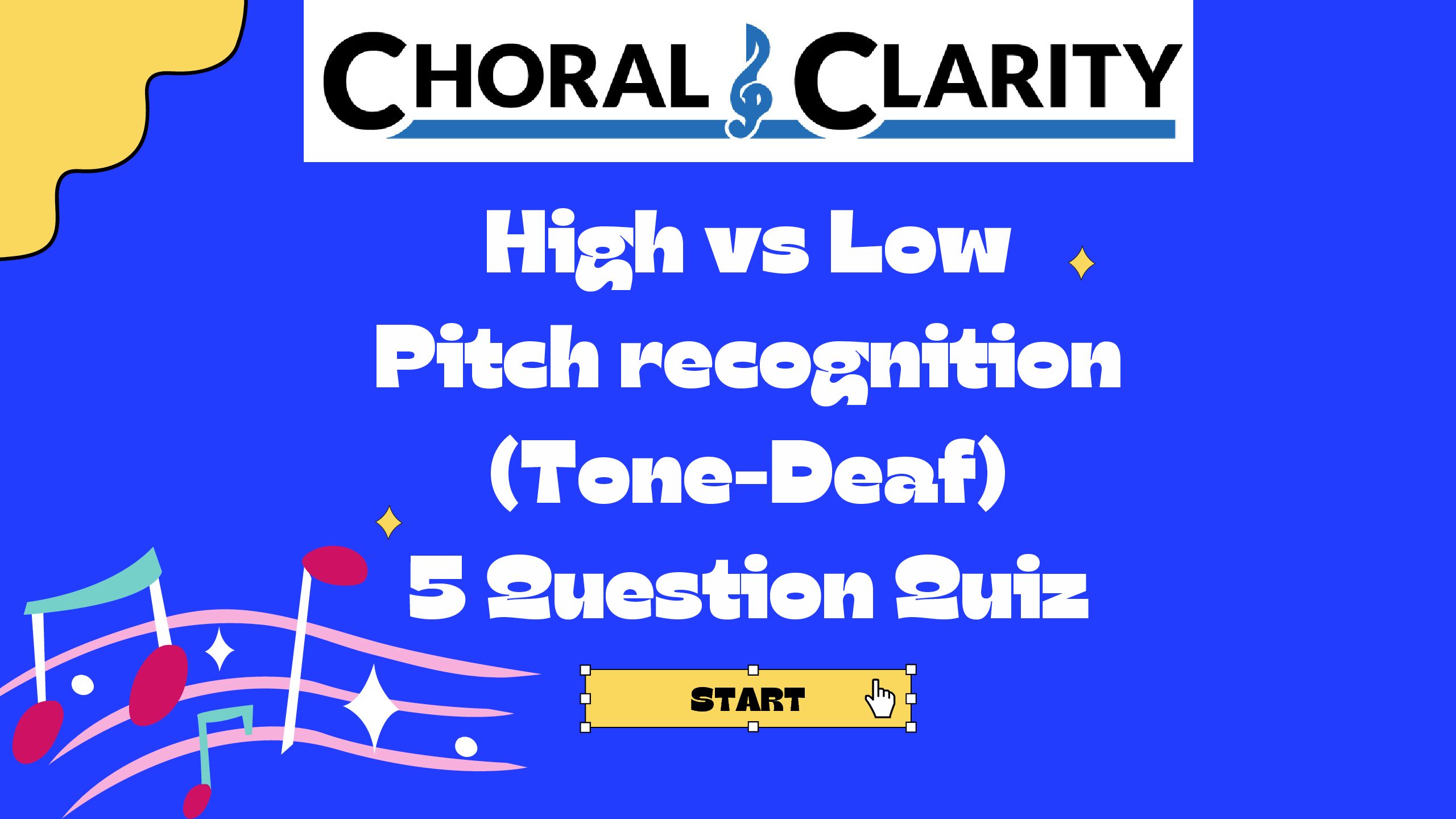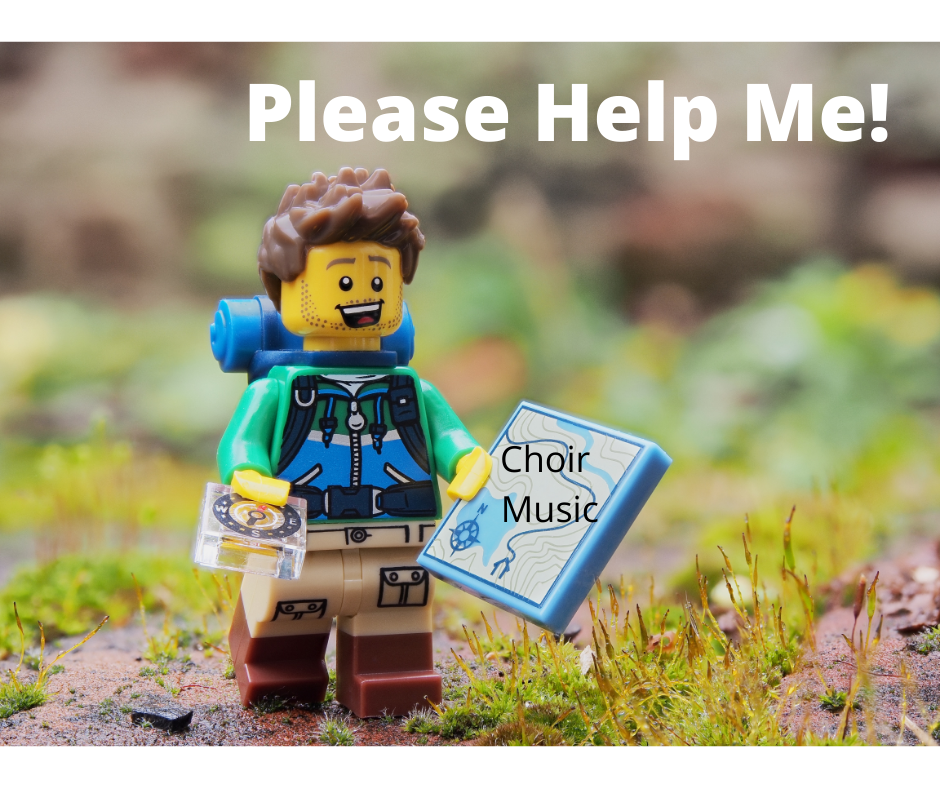I am convinced that 4-5% of the population, who are described to suffer from “amusia”, are misunderstood. My strong belief is based on the 20+ years of teaching thousands of singers.
Simply put, amusia is the inability to recognize musical tones or to reproduce them.
If you can’t recognize musical tones, you certainly won’t be able to reproduce them. In my career, I have yet to experience a student who couldn’t learn to recognize music tones. Furthermore, I have yet to experience a singer who could recognize musical tones but then couldn’t learn to reproduce them.
As a result, I’ve created a simple 2-minute quiz to help choir directors and voice teachers determine if a singer is capable of recognizing musical tones. In other words, this quiz will determine if a singer’s ear is ready to learn to match pitch. This free tone deaf test is available at any time and can be used individually or in a choral setting. This could be an easy way to know instantly if you have any singer who is seriously deficient in their ear-training development to the point that is hindering their ability to match pitch. While it is certainly true that some singers struggle with this concept, it is still highly unlikely they are tone-deaf. Here is the tone deaf test.
Here is the tone deaf test for your singers:
How to assess their performance:
First, download the free answer sheet (and answer key). While this is not absolutely necessary, it certainly makes it easier for an efficient assessment.
If the singer answers all 5 questions correctly, they are definitely not tone-deaf; we can safely make that assessment because they can distinguish high vs. low pitches. This also means the singer has completed step 1 of my 7-Step pitch-matching process.
If the singer only answers the first two or three questions correctly, it likely means they need further ear-training development. The need for further ear-training development, does not mean a singer is tone-deaf.
If a singer is incorrect on even the first and/or second question, before determining they are tone-deaf, I would first question their interpretation of the terminology “high/low”. It’s quite possible they are mixing up the two terms or they are confusing volume instead of pitch.
What do we do if they are struggling on the first two questions of the tone deaf test?
Continue playing a series of two notes, one at a time, 3-4 octaves apart and ask them which one is higher. Whether they answer the question correctly or incorrectly, I would still ask them why they chose that specific answer. Once they consistently answer correctly, choose two pitches within two octaves and eventually within one octave.
What do we do if they are struggling on the final few questions of the tone deaf test?
Continue to play a sequence of two pitches within the two octave and one octave range. The more you ask the singer to explain what they heard, the more likely their ear-training will improve!
Should we ask struggling singers to sing the pitches they are hearing?
If your singers can reproduce these pitches, they are clearly not tone-deaf. The reason for this assessment is to ensure the struggling singer is ready to be able to match pitch. It is most important to first pinpoint if a struggling singer can decipher high vs. low pitches. No singing is necessary for this quiz.
What’s next if/when a struggling singer can correctly answer all 5 answers of the tone deaf test?
When a singer scores perfectly on this quiz, they have completed Step 1 of my 7 Step Pitch-Matching Solution. We have simply ruled out being “tone-deaf” and now they are ready to develop their pitch-matching skills: the most effective way that I have found is by following the next 6 steps in the process. For more information on my course HOW TO TEACH ANYONE TO MATCH PITCH!, click here!










Leave A Comment